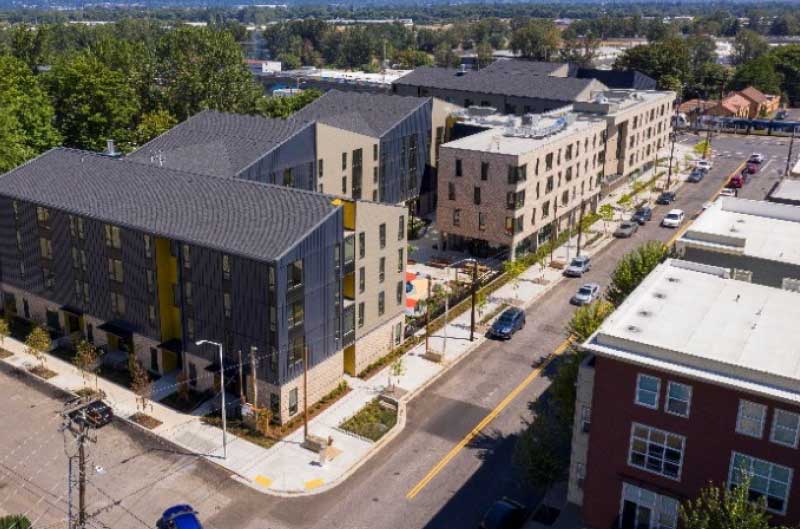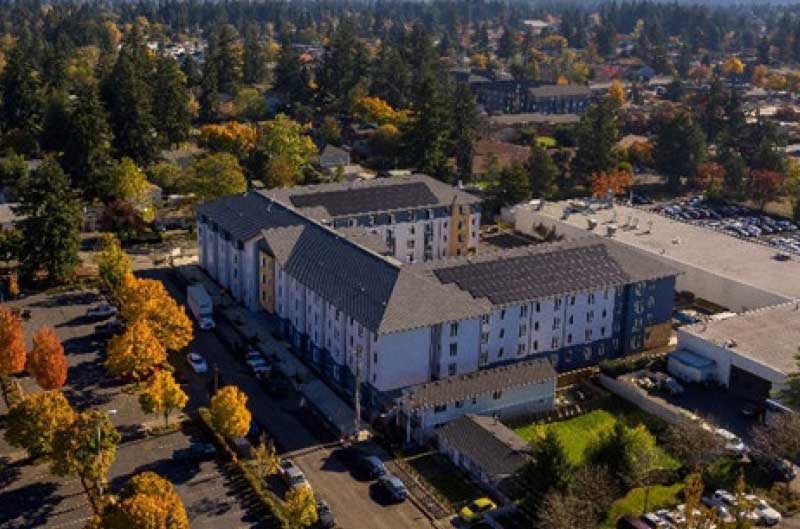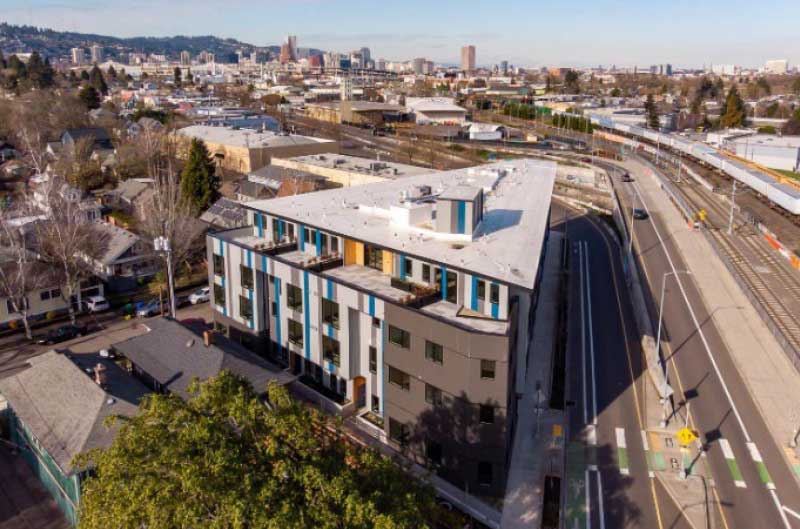
Transit-Oriented Development
We’re working with partners on compact, walkable, pedestrian-oriented, mixed-use communities around transit to create shorter trips, better lifestyles and more efficient use of resources.
TriMet is committed to making our region an inclusive, sustainable and vibrant place to live and work. Transit-Oriented Development (TOD) can help achieve this by delivering high density housing and commercial buildings close to transit. TOD projects help communities manage new growth while minimizing negative environmental and social impacts.
TOD Benefits
- Increased supply of housing
- Reduced congestion and reduced pollution
- Higher quality of life with healthier, more livable neighborhoods
- Increased transit ridership
- More diverse and better integrated communities
- Greater economic prosperity and better access to jobs
TOD can also bring many changes on people and places. We do equity, inclusion, accessibility and sustainability assessments to ensure TOD opportunities and benefits are enjoyed by everyone.
Program Overview
Our TOD program exists to create and support partnerships with public, private and community groups to deliver equitable developments so that each project meets everyone's needs. It focuses on promoting the development of properties no longer needed by TriMet as well as third-party-owned properties near transit.
We are not developers, but we work with partners to facilitate new developments. These programs optimize the density and mix of uses at TOD sites to minimize the dependency of owning a vehicle while maximizing accessibility to transit. TOD can deliver impactful and diverse benefits, including increasing the supply of affordable housing units, preventing displacement, creating economic opportunities and relieving gentrification pressures.
Guidelines
To support the delivery of our TOD program, TriMet adopted formal guidelines defining key TOD objectives and goals. These guidelines were first approved by TriMet’s Board of Directors in May 2020 and are periodically reviewed and updated to ensure that the TOD program remains dynamic and can quickly respond to changing community, environmental and economic needs.
Integrated and Multi-Modal
Provide Housing
Financially Viable
Safe, Vibrant and Accessible
Balanced Mixed-Use
Deliver Density
User-Friendly to Promote Transit Use
Regional TOD Plan
TriMet’s Regional TOD Plan builds on our TOD Guidelines by detailing how we can achieve our TOD objectives and goals within the framework of Metro’s 2040 Growth Concept, which “encourages compact development that uses land and money efficiently."
The Regional TOD Plan covers all aspects of our TOD program and provides transparency, structure and continuity to the program. It includes information and guidelines for the inventory, evaluation and prioritization of TriMet sites in our TOD program.
The plan is bold and nimble to support a proactive, consistent and replicable approach that allows our TOD program deliver and grow. Our goal is to grow our TOD portfolio by delivering additional community-focused developments.
Portfolio and Projects
TriMet re-established our TOD program in 2015. Since then, we have supported the delivery of 718 new residential units, 477 (66%) of which are affordable units (i.e., for residents with incomes <60% AMI).
Example Projects
hollywoodHUB
222 affordable units
4110 NE Halsey Street, Portland, OR 97232
In NE Portland, we’re working in partnership with BRIDGE Housing to deliver a transformational affordable housing and public infrastructure transit-oriented development at the Hollywood Transit Center. BRIDGE Housing aims to deliver 100% permanent affordable housing on part of the site. This multi-year project will bring vibrancy to this under-used site, providing quick connections to MAX trains and bus lines.
The housing part of the project, called hollywoodHUB, is led by BRIDGE and includes a 13-story building with 222 permanently affordable homes for families and individuals who earn 60% or less of Area Median Income. The building will include indoor and outdoor community spaces and will have resident supportive services and programming provided by Hacienda CDC.
The project will also replace aging infrastructure at Hollywood, improve connections to the MAX station and make street and intersection improvements at NE Halsey and 42nd Avenue. That construction is underway and is expected to be complete by mid-2026.
East County Library
95,000 sq. ft. civic space
1297 NW Eastman Pkwy, Gresham, OR 97030
A partnership between TriMet and Multnomah County is breathing new life into an underused Park & Ride in Gresham. On June 16, 2023, the Gresham City Hall Park & Ride closed as Multnomah County prepares the site for the new East County Library, a 95,000 square foot building with access to transit.
In July 2022, Multnomah County agreed to purchase two-thirds of the TriMet-owned Park & Ride, with an eye on developing a flagship library in East Multnomah County, where roughly 40% of the county’s population now resides. The new library, scheduled to open in 2025, will rival Multnomah County's Central Library in size and feature community amenities like an auditorium and public plaza.
Fuller Station Apartments
100 affordable housing units
9730 SE Fuller Rd, Clackamas, OR 97086
In April 2021, we completed a TOD deal with Clackamas County and developers Geller, Silvis & Associates and Guardian Real Estate Services to create the Fuller Road Station Apartments just steps away from the SE Fuller Road MAX Station.
The developer re-purposed approximately one-third of TriMet’s under-used Fuller Road Park & Ride site to create a six-story, 100-unit building that is entirely dedicated to affordable housing. The project was completed in November 2022, and was fully leased by March 2023. Project partners included DevNW and Clackamas Women’s Service, to provide a community for individuals aging out of the foster care system and survivors of domestic abuse. The affordable homes are for residents and families earning between 30% and 60% of the Area Median Income, and they can be accessed via a new street linking Fuller Road to the MAX station that also unlocks residential development land south of the project.
Completed TOD Projects
Community Engagement
Community engagement is an essential part of TOD. When we propose a project, we commit to:
1 Early neighborhood and community engagement to ensure diversity and inclusion is integrated from project inception through completion
2 Report on the impact of site improvements
3 A site-specific analysis to maximize housing options
4 Equitable contracting and procurement
5 Document and report our processes and outcomes transparently
TOD Library
See the latest news, public notices, board presentations and more in the library.
Contact Us
Successful TOD requires meaningful community and other partner input. We welcome your support, voice and partnership in delivering Transit-Oriented Development projects. Please contact us if you have any comments, ideas, feedback or project concepts you’d like to share with us.
Want to host an event or program at one of our Park & Rides or other surplus properties? Send us an email!
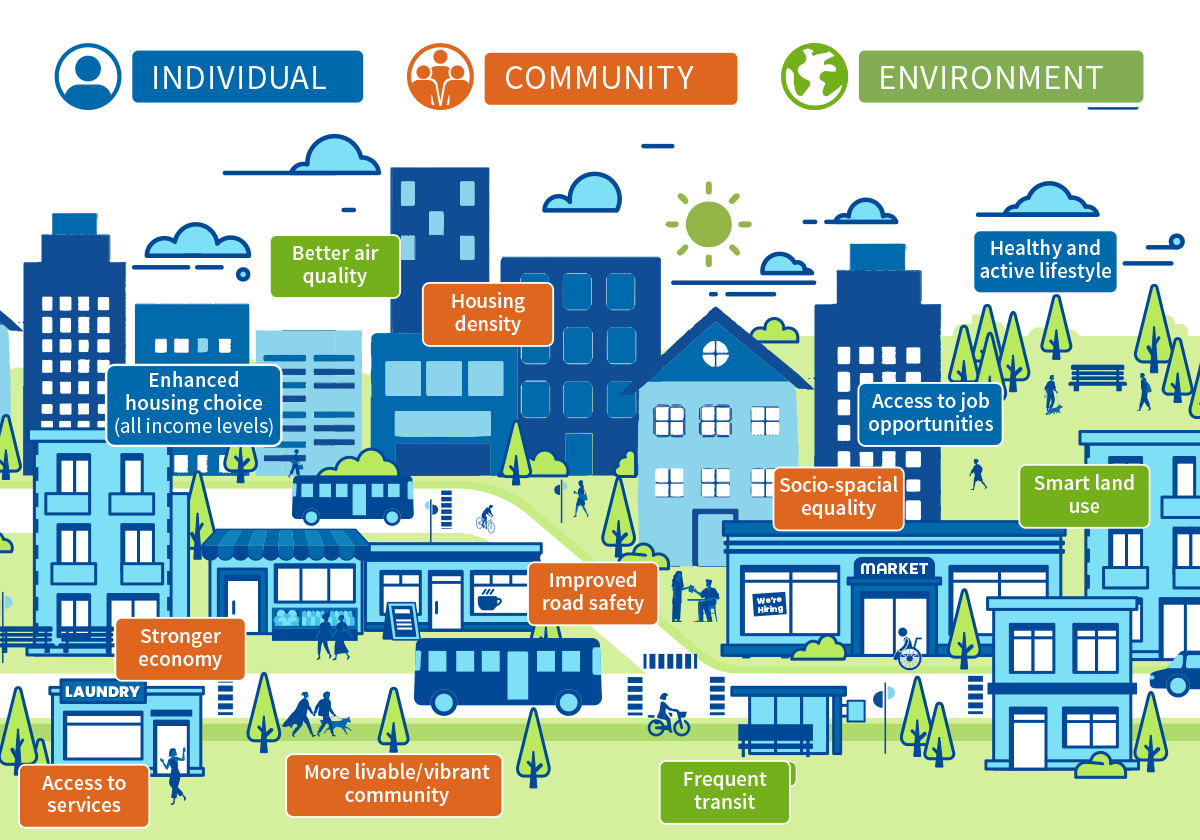
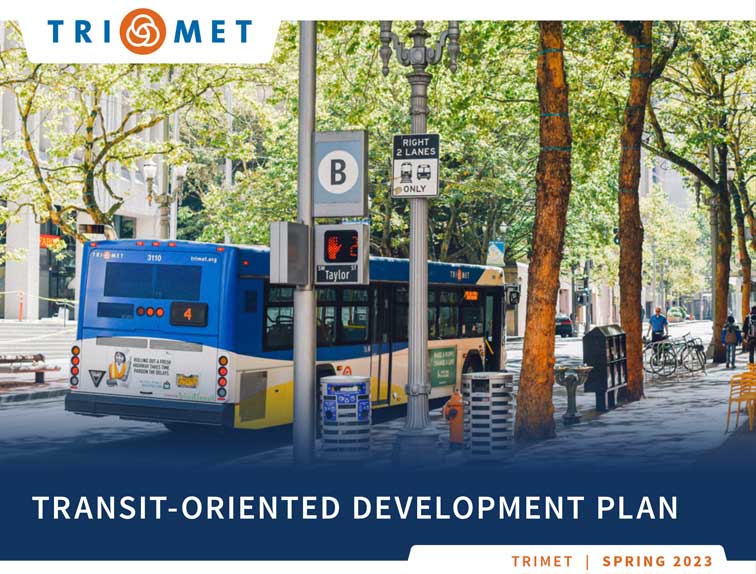
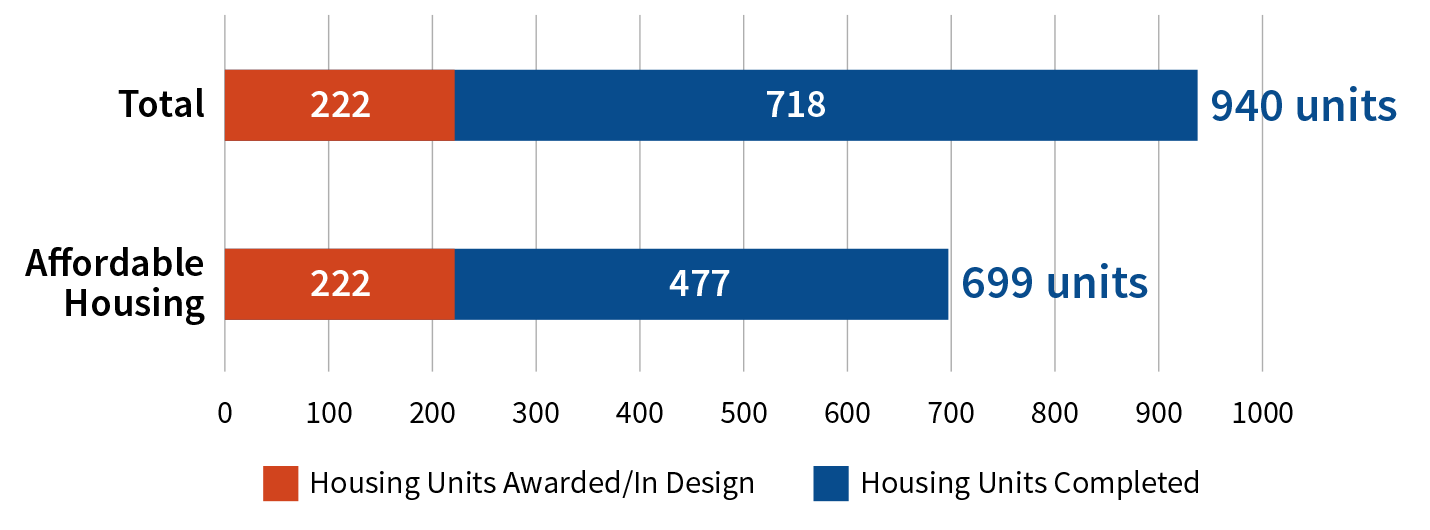
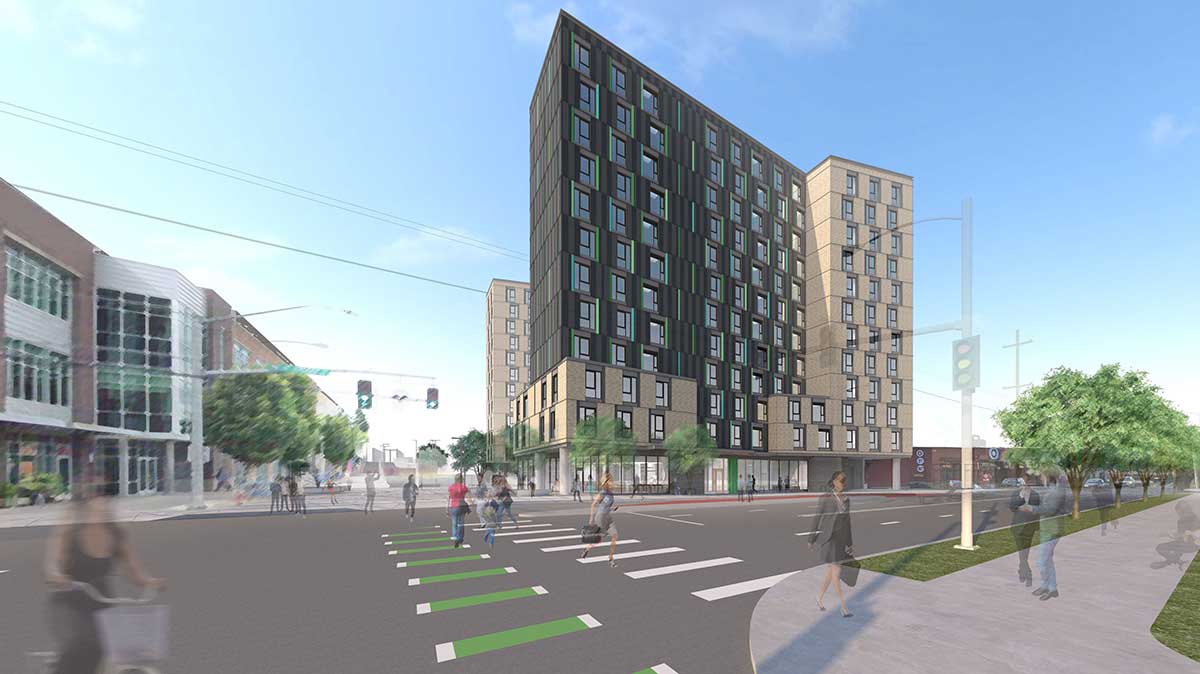 Looking south from 43rd Avenue
Looking south from 43rd Avenue
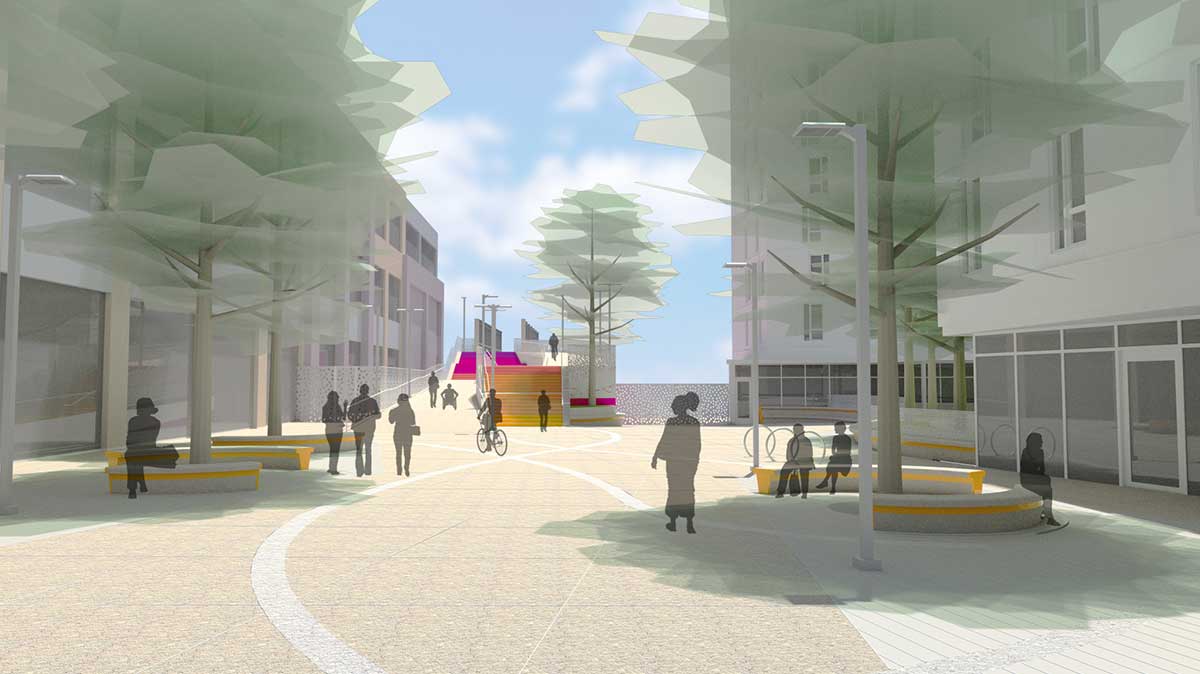 Looking south from NE Halsey Street
Looking south from NE Halsey Street
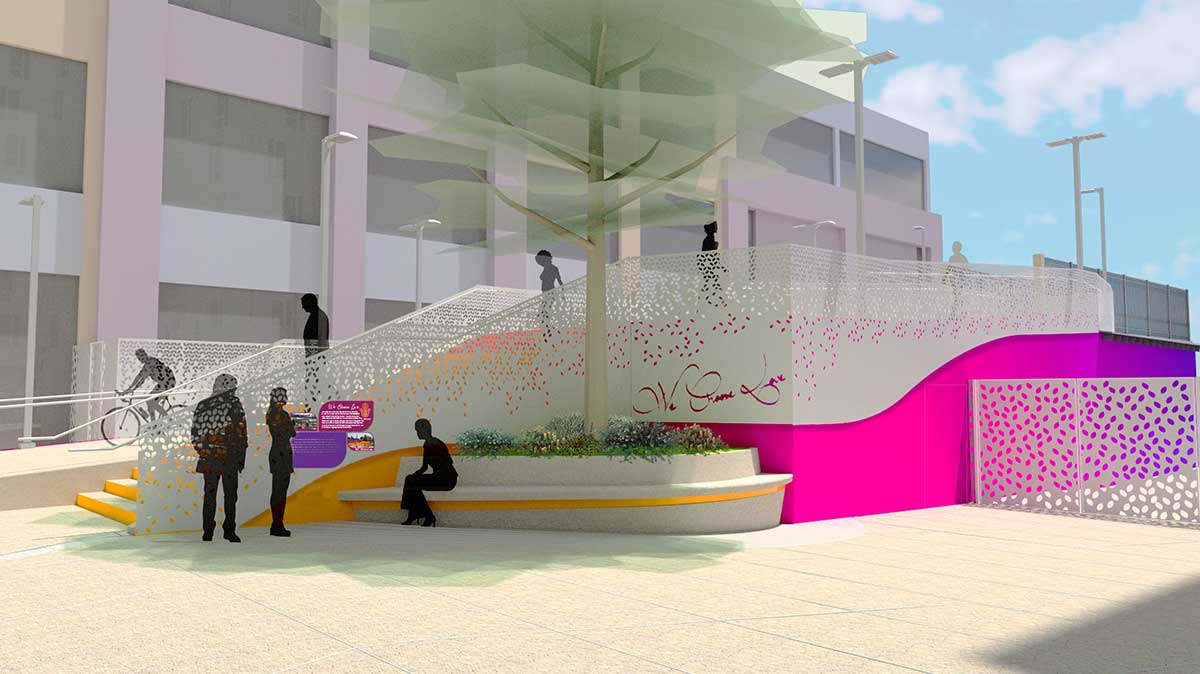 The stairs, ramp and tribute area
The stairs, ramp and tribute area
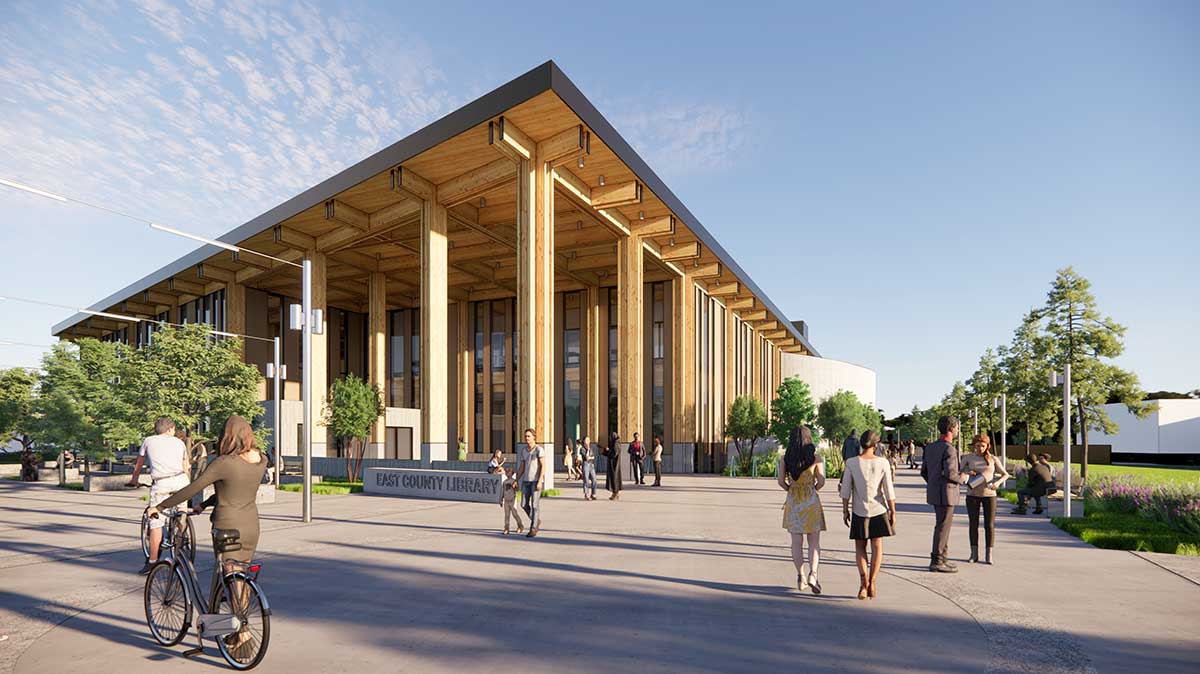 Rendering of NE corner (courtesy Holst Architecture)
Rendering of NE corner (courtesy Holst Architecture)
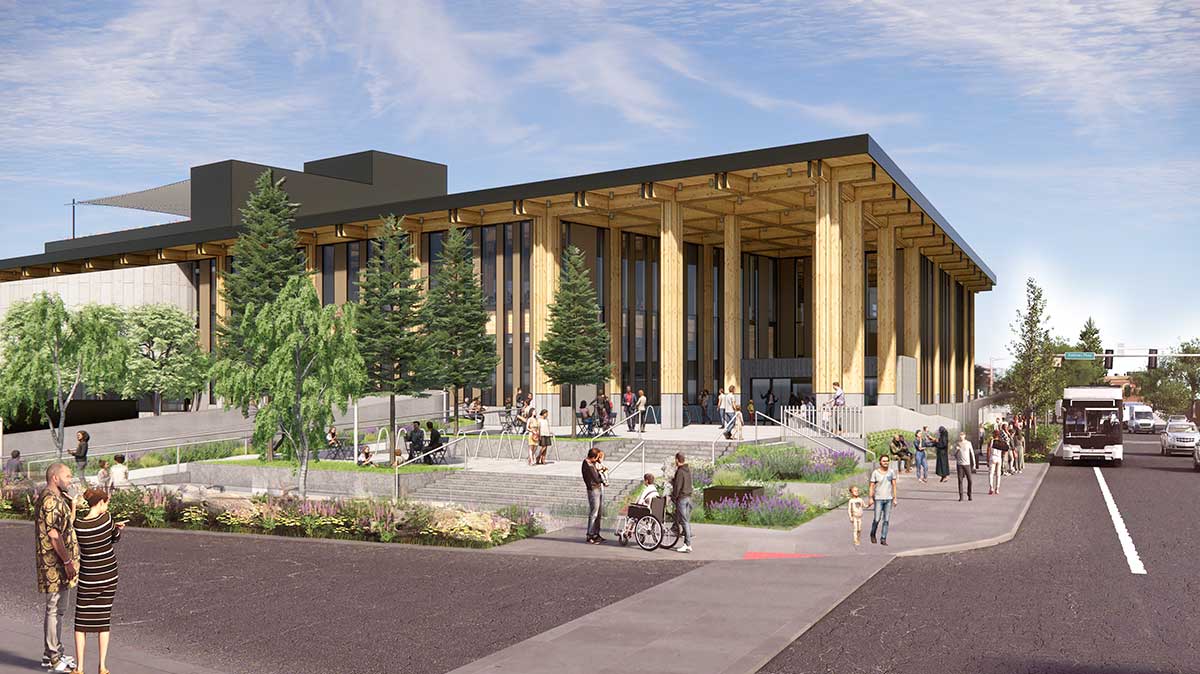 Rendering of SE corner (courtesy Holst Architecture)
Rendering of SE corner (courtesy Holst Architecture)
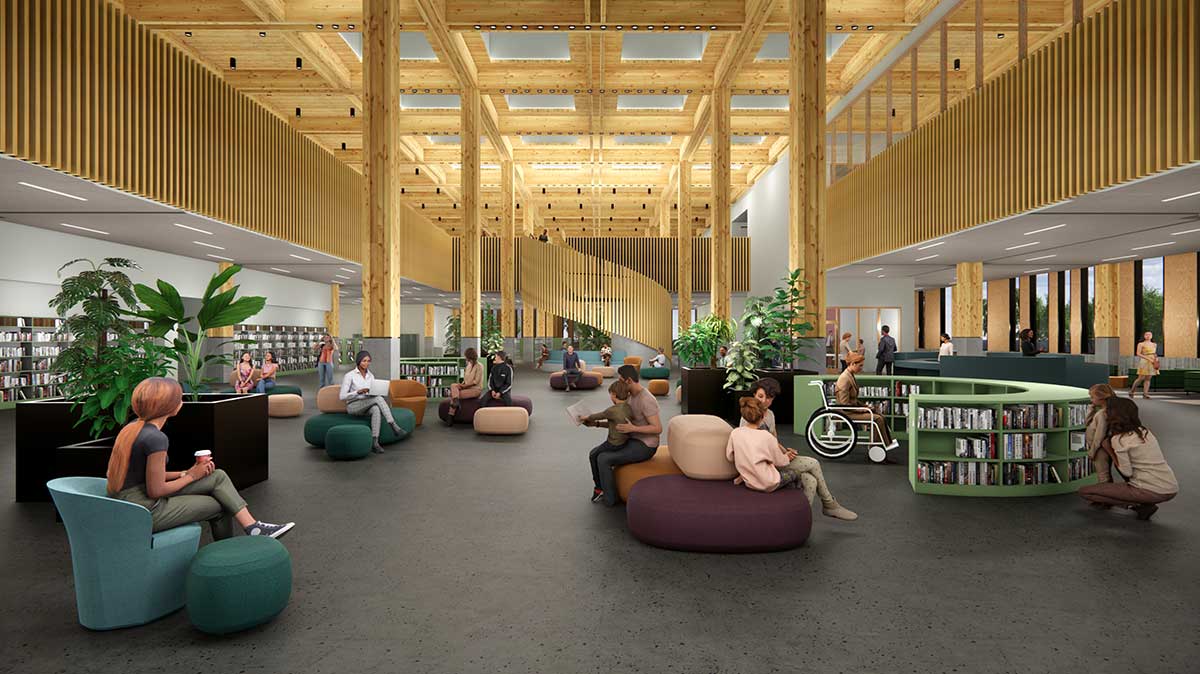 Rendering of atrium (courtesy Holst Architecture)
Rendering of atrium (courtesy Holst Architecture)
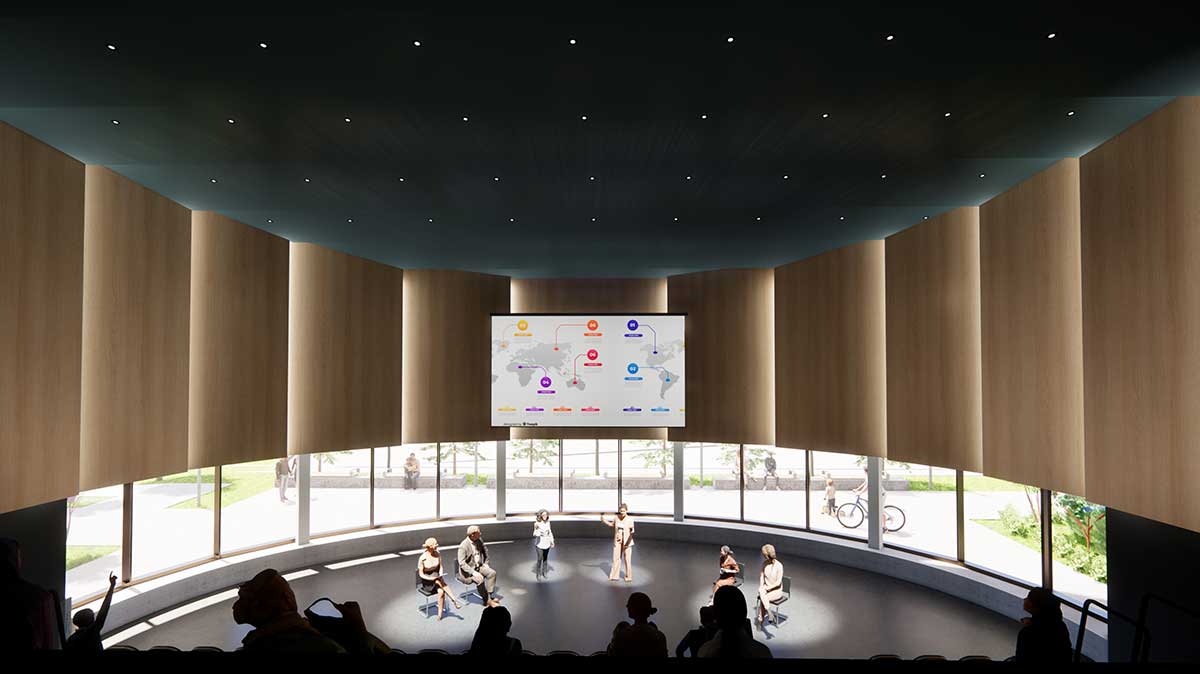 Rendering of auditorium (courtesy Holst Architecture)
Rendering of auditorium (courtesy Holst Architecture)
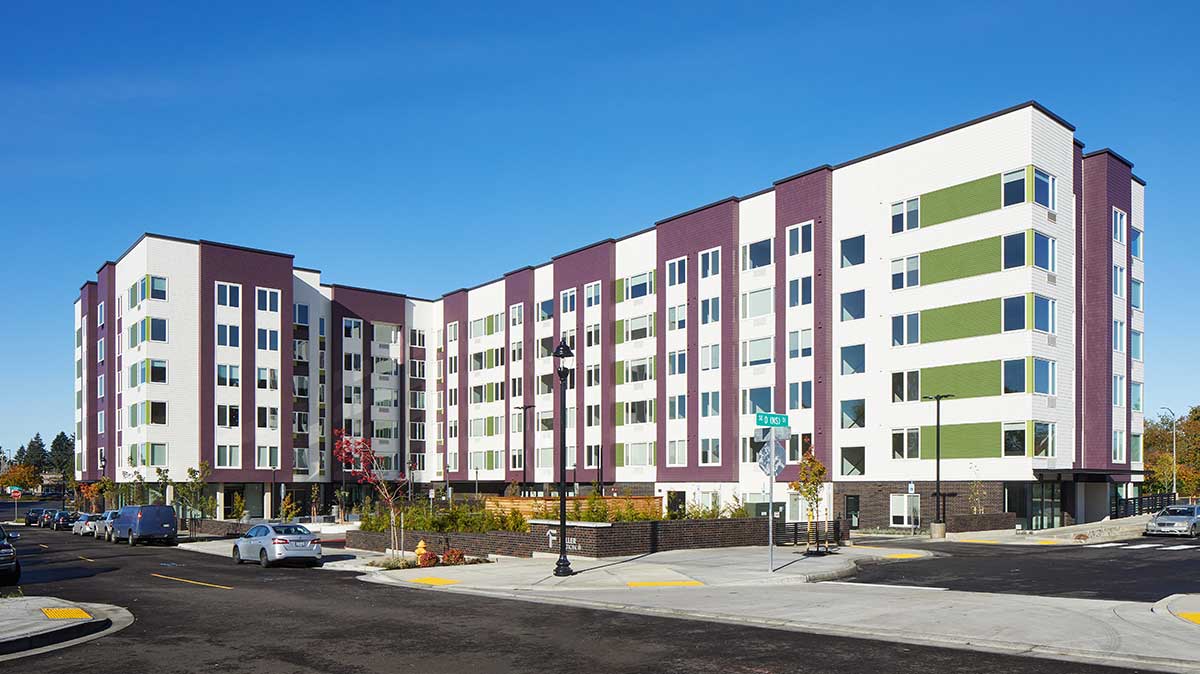 Apartment building
Apartment building
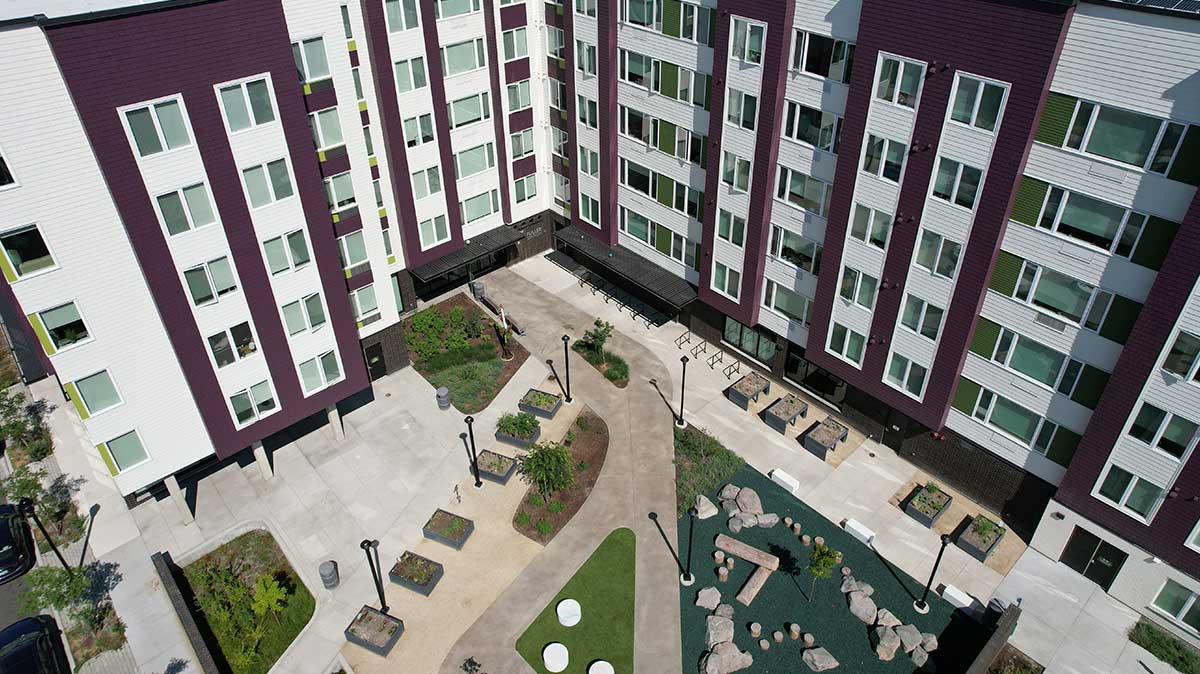 Courtyard
Courtyard
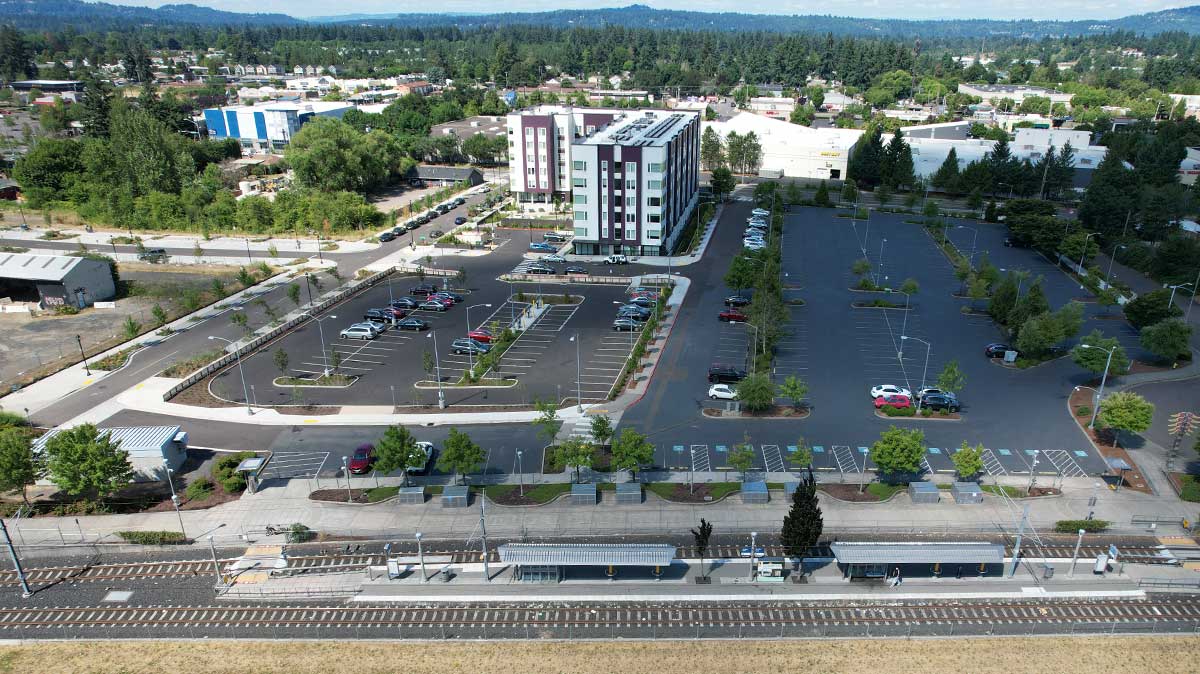 MAX Green Line station adjacency
MAX Green Line station adjacency
